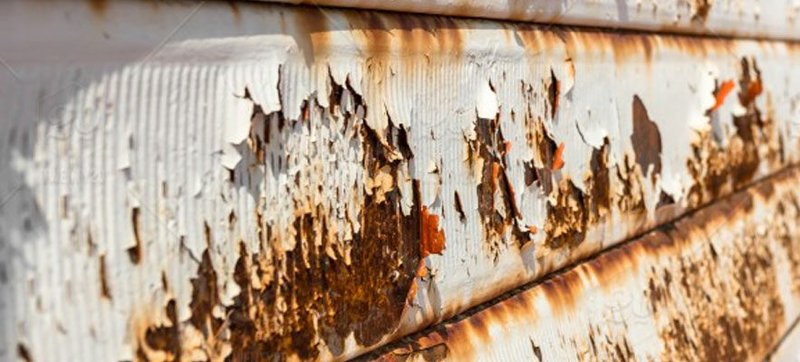
Think of your bathroom’s door hardware as the unsung hero of your home. They work day in and day out, bearing the weight of daily use. But, like any hero, they need a little help to keep performing at their best. In this guide, we’ll break down practical tips to prevent rust and corrosion so that your door hardware remains reliable and visually appealing for years to come.
Understanding Rust and Corrosion
Rust and corrosion are more than just terms you hear when you’re thinking about old cars or neglected tools. In simple terms, rust is the result of iron or steel reacting with moisture and oxygen in the air. It’s like when you leave a slice of bread out too long and it starts to mold. Corrosion, on the other hand, can affect various metals like aluminum and copper, causing them to deteriorate as well.
You might be wondering why this matters for your bathroom hardware. Well, in a space prone to high humidity due to showers and baths, rust and corrosion can appear faster than you’d expect. Imagine the frustration of a stuck door knob when you’re in a hurry! Regular maintenance can prevent these issues and keep your bathroom hardware in top shape.
Choosing the Right Materials
One of the best ways to prevent rust and corrosion is to start with the right materials for your bathroom hardware. Not all metals are created equal when it comes to moisture resistance. For instance, stainless steel, brass, and bronze are excellent choices that resist rust and corrosion much better than standard iron or steel.
Take stainless steel, for example. It contains chromium, which forms a protective layer that shields the metal from moisture. Brass has natural anti-corrosive properties, making it a great pick for high-moisture spaces. You want to ensure that when you’re purchasing door hardware, you’re looking for products labeled as corrosion-resistant or suitable for bathrooms. This way, you’re setting yourself up for success right from the start.
Regular Cleaning and Maintenance
Just like you wouldn’t skip a visit to the dentist, you shouldn’t skip regular cleaning for your bathroom hardware. Dust, grime, and soap scum can trap moisture against the metal surfaces, promoting rust and corrosion over time. A simple routine can go a long way.
Start by wiping down your doors and hardware with a damp cloth at least once a week. You can use a mild soap solution to cut through dirt and soap residue. Afterward, be sure to dry everything thoroughly with a soft towel. This helps remove excess moisture that could lead to rust.
Also, consider applying a light coat of vegetable oil or silicone spray to hinges and knobs every few months. This will act as a barrier against moisture and keep everything working smoothly. Just remember to avoid any wax-based products, as they can attract dirt.
Proper Ventilation
Ventilation plays a crucial role in managing humidity levels, which is key to preventing rust and corrosion in your bathroom. Without proper airflow, moisture can build up, creating the perfect environment for corrosion to thrive.
Consider installing an exhaust fan if you don’t have one already. It helps reduce humidity levels by removing moist air after showers or baths. If a fan isn’t an option, try opening a window during and after use to let fresh air circulate. It’s like giving your bathroom a refreshing breath of fresh air, which will help keep your hardware and everything else feeling fresher, too.
Sealants and Protective Coatings
Applying sealants or protective coatings can offer an extra layer of defense against moisture and rust. Products specifically designed for metal surfaces can help create a barrier that prevents water from reaching the metal itself.
Before applying any sealant, make sure the surface is clean and dry. Follow the manufacturer’s instructions carefully for the best results, and consider reapplying every couple of years. It’s like using sunscreen; regular application can help keep the harmful elements at bay.
Preventing Water Accumulation
Water accumulation can be a leading cause of rust and corrosion, especially in bathrooms. Take a look around your space for places where water tends to pool or collect. Simple changes can make a significant difference.
For example, ensure that your shower curtain or shower door is properly positioned to avoid excess water dripping onto the floor. Placing bathmats in strategic locations can also help absorb moisture. If you notice any leaks from pipes or faucets, get those fixed right away. It’s like taking care of a small crack in the wall before it becomes a big problem.
Knowing When to Replace Hardware
Even with the best prevention methods, sometimes hardware can succumb to wear and tear. If you notice signs of significant rust or corrosion that cleaning won’t fix, it might be time to consider replacing that hardware.
Don’t wait until it impacts functionality—like a door that won’t open or close properly. Keep an eye out for discoloration, pitting, or flaking metal. Replacing hardware sooner rather than later can save you headaches down the line.
Final Thoughts
Preventing rust and corrosion on your bathroom’s interior door hardware is all about proactive care and smart choices. By selecting the right materials, practicing regular maintenance, and ensuring proper ventilation, you can keep your hardware looking good and functioning well.
Remember, it’s not just about aesthetics; it’s about maintaining the integrity and reliability of your bathroom’s hardware. A little effort goes a long way. So, roll up your sleeves and take charge of your bathroom’s hardware health—you’ll thank yourself every time you open that door!